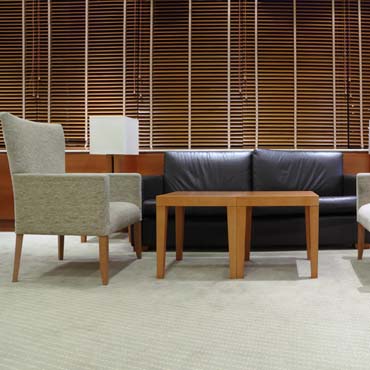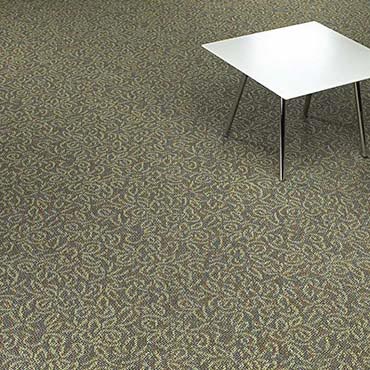Beaulieu Residential, your complete decorating resource, now has a collection of carpeting in a dazzling range of colors and styles. You can be confident that your choice of floor covering will blend perfectly with the fabrics and furniture style in the room, creating an appealing and harmonious setting. Learn More
Commercial Loop Pile
Commercial Loop Pile Guide

The Integral Role of Commercial Loop Pile Carpet in Modern Interior Design and Architecture
In the dynamic world of modern interior design and architecture, commercial loop pile carpeting stands out as a significant player. Its integration into various commercial spaces—be it offices, hotels , or public buildings—reflects not just an aesthetic choice but a strategic design decision. This article delves into the versatility, durability, and sustainability of commercial loop pile carpeting, providing valuable insights for architects, interior designers, specifiers, and commercial buyers.
Versatility: A Designer’s Canvas
Commercial loop pile carpeting offers an unparalleled range of design possibilities. Unlike traditional carpeting, the looped fibers provide a uniform and consistent texture, offering a sophisticated and seamless appearance. This uniformity is a boon for designers who aim to create a cohesive look across expansive commercial spaces. The carpeting comes in various colors, patterns, and pile heights, making it adaptable to diverse interior themes, from minimalistic and modern to rich and opulent.
Moreover, advancements in dye technology have enabled more intricate and vibrant designs. Digital dye infusion allows for the creation of detailed patterns and images, transforming floors into a canvas for artistic expression. This flexibility makes loop pile carpeting a preferred choice for spaces that demand a unique identity, such as boutique hotels and high-end retail stores.
Durability: Withstanding the Test of Time and Traffic
The durability of commercial loop pile carpet is another attribute that underscores its significance. Designed to withstand high foot traffic, these carpets are an investment in long-term functionality and appearance retention. The looped fibers are less prone to crushing and matting compared to cut pile carpets, ensuring the carpet maintains its original look over time. This durability is especially crucial in commercial settings where the cost of frequent replacements can be prohibitive.
Additionally, manufacturers have innovated in fiber materials and construction techniques to enhance durability. Nylon, for example, remains a popular choice for its resilience and easy maintenance. Recent developments in fiber technology have also led to enhanced stain resistance and easier cleaning, essential features in high-traffic commercial environments.
Sustainability: A Commitment to the Environment
Sustainability in carpeting has gained paramount importance in recent years. Commercial loop pile carpets are increasingly being manufactured with eco-friendly materials, including recycled and bio-based fibers. This shift not only reduces the environmental impact but also appeals to a growing segment of eco-conscious clients.
Manufacturers are also focusing on the entire lifecycle of the carpet, from production to disposal. The use of sustainable practices, such as reduced water and energy consumption during manufacturing and recyclability of old carpets, is becoming a standard. This holistic approach to sustainability enhances a brand's image and aligns with the values of modern businesses.
Enhancing Commercial Spaces
The impact of commercial loop pile carpeting on the functionality and ambiance of a space is profound. In office environments, it contributes to noise reduction, creating a more conducive work atmosphere. In hospitality settings, it adds a layer of comfort and luxury, enhancing the guest experience.
The choice of carpet can also influence the perception of space. Lighter colors and patterns can make a room appear more spacious, while darker tones create a cozy, intimate feel. The tactile experience of the carpet, often overlooked, can significantly affect the ambiance of a commercial setting.
Insights for Professionals
For architects, interior designers, and specifiers, selecting the ideal commercial loop pile carpet involves several considerations:
- Traffic and Usage: Evaluate the level of foot traffic and the purpose of the space. High-traffic areas require more durable, easy-to-clean carpeting.
- Design Harmony: Ensure the carpet complements the overall design theme. Utilize custom design options to create a unique environment.
- Sustainability Goals: Align carpet choice with the sustainability objectives of the project. Look for carpets with environmental certifications.
- Maintenance Requirements: Consider the ease of maintenance and cleaning, as this will impact the long-term appearance and cost-effectiveness.
- Budget Constraints: Balance aesthetic desires with budget limitations. Higher initial costs may be offset by longer durability and lower maintenance costs.
Recent Trends and Innovations
The industry has seen exciting trends and innovations in recent years. The use of advanced synthetic fibers that mimic natural materials offers both aesthetic appeal and enhanced performance. Smart technology integration, such as carpets with built-in sensors to track foot traffic, is emerging as a tool for space management in smart buildings.
In terms of design trends, there is a growing preference for bold patterns and vibrant colors. Biophilic designs, which incorporate elements of nature, are also gaining traction, resonating with the current emphasis on wellbeing in commercial spaces.
Conclusion
Commercial loop pile carpeting is much more than a flooring choice; it's an integral component of modern interior design and architecture. Its versatility, durability, and sustainability, combined with the latest trends and innovations, make it an invaluable tool for professionals aiming to create functional, aesthetically pleasing, and environmentally responsible commercial spaces. As the industry continues to evolve, the role of commercial loop pile carpeting is set to become even more central in shaping the spaces where we work, shop, and socialize.
Disclaimer: The information provided in this article is for general informational purposes only. While we strive to ensure the accuracy and reliability of the information presented, we make no warranties, express or implied, about the completeness, accuracy, reliability, suitability, or availability with respect to the content. Any reliance you place on such information is strictly at your own risk. We recommend consulting with professionals for specific advice tailored to your project’s needs, particularly regarding building codes, regulations, and product specifications.
Under no circumstances shall we be liable for any loss or damage, including without limitation, indirect or consequential loss or damage, arising from the use of, or reliance on, the information provided in this article.
Select Product Sub-Category:
Commercial Loop Pile
Top 2 Types of Commercial Loop Pile
 Carpeting - 475 Commercial Loop Pile (Texture)Introducing our Commercial Textured Loop Pile Carpet – a durable, stylish choice for any space. Elevate your environment with comfort and sophistication. | |
 Carpeting - 473 Commercial Loop Pile (Pattern)
Introducing our Commercial Loop Pile patterned Carpet! Elevate your space with durable elegance. Perfect for any setting. |
Featured Brands
The Best 2 Commercial Loop Pile Brands

Beaulieu Carpet
Profile | WebsiteBeaulieu Residential, your complete decorating resource, now has a collection of carpeting in a dazzling range of colors and styles. You can be confident that your choice of floor covering will blend perfectly with the fabrics and furniture style in the room, creating an appealing and harmonious setting. Learn More

Mannington Commercial Carpet
Profile | Website | GreenMannington commercial flooring has been recognized as a leader in product innovation, styling, and design, as well as in operational excellence and environmental stewardship. With industry-leading fiber systems and superior manufacturing, our vast array of carpet styles look better and last up to 75% longer than any other carpet in the marketplace. Learn More
Commercial Loop Pile News
Latest Commercial Loop Pile News
Commercial Loop Pile...Unraveling the Benefits of Commercial Loop Pile Carpeting. IntroductionIn the dynamic world of commercial interior design, flooring plays a pivotal role in shaping the aesthetics and functionality of a space. Commercial loop pile carpeting, known for its durability, versatility, and aesthetic appeal, has emerged as a favored choice among architects, interior des... |
Commercial Loop Pile (Pattern)...Navigating the World of Commercial Loop Pile Patterned Carpeting Introduction:In the realm of commercial interiors, the choice of flooring plays a pivotal role in both aesthetic appeal and practical functionality. Among the diverse options available, commercial loop pile patterned carpeting stands out for its unique blend of durability, style, and comfort. This a... |
Commercial Loop Pile (Texture)...Exploring the World of Commercial Loop Pile Textured Carpeting In the realm of commercial interior design, flooring plays a pivotal role in both aesthetics and functionality. Among the myriad choices available, commercial loop pile textured carpeting stands out for its unique blend of durability, style, and comfort. This article delves into the intricacies of this flooring opti... |

